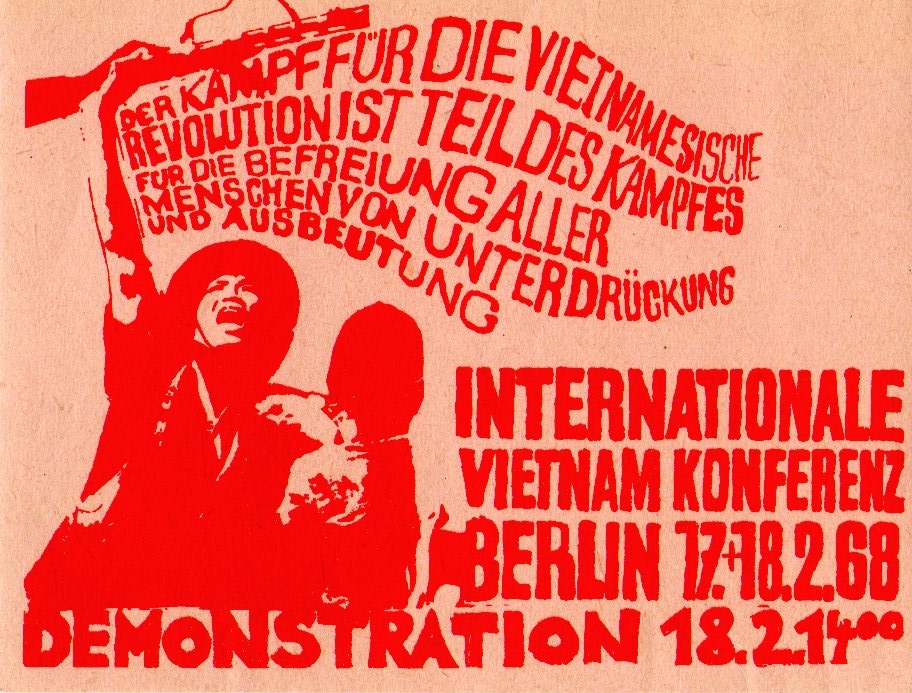CLAUS LEGGEWIE - Reappraising the politics of ’68
Retrospectives of 1968
tend to dismiss its socialism and instead to see identity politics as its
primary legacy. Rightly so? Leggewie asks how far the New Left achieved
its political goals and whether identity politics were necessarily incompatible
with its anti-capitalist & social-revolutionary agenda.


Let it be emphasized:
no social scenario, however desolate, justifies abuse of or discrimination
against minorities. Nor, however, does the mere affirmation of cultural
diversity, together with politically correct language, remedy deleterious
social and employment conditions, which are again affecting women and
minorities disproportionately. One has to keep an eye on both things – there
are no major and minor contradictions, as Marxism-Leninism once saw it. Sexism
and racism are one side of the story, the voters who defect to the far-Right
because for decades they have not felt represented by established parties are the
other... There can be no
alternative between collective identity and class, between artistic and social
critique, between equality and difference, between universalism and
particularism. An ambitious politico-social movement must consider both strands
in combination. Capitalism is more than an economic subsystem. As Karl Polanyi
argued some seventy years ago, it is a mode of socialization that posits
difference as inevitable. Today, not for the first time, it blames inequality
and exploitation on those whom they affect.
February 1968. Radical
leftists from all over the world are in West Berlin to attend the International
Vietnam Congress. The main auditorium of the Technical University is packed to
the rafters. A banner has been draped over the edge of the viewing balcony
demanding the ‘liberation of all people from oppression and exploitation’.
Hanging next to it is the resplendent image of Ho Chi Minh. The Tet offensive
has just demonstrated the vulnerability of the US military in Southeast Asia
and an American defeat has become a real possibility.
Among those attending the
conference is the little known French anarchist, Daniel Cohn-Bendit. The main
attraction, however, is Rudi Dutschke, the charismatic leader of the Socialist
German Student League (SDS). Dutschke delivers his speeches with deep pathos
and is fond of citing Marx’s mantra about ‘the categorical imperative to
overthrow all relations in which man is a debased, enslaved, forsaken,
despicable being’. ‘Comrades! We don’t have much time!’ he exclaims on the
second day. ‘Every day, we too are being crushed in Vietnam, and not just
figuratively speaking.’ At this very moment, Dutschke is vacillating between
giving up the fight or becoming a ‘real’ urban guerrilla. Shortly afterwards,
he is vilified for appearing on the cover of the magazine Capital for
a thousand deutschmarks. Then, in April, he is shot three times by a neo-Nazi
on the Kurfürstendamm.
What does this
breathless, desperate political existentialism have to do with this year’s
polished retrospectives of 1968? How did the socialist impetus for the Vietnam
Congress, with its identification with the workers’ movement, relate to other
arenas of revolt? To the university, for example – the home of the students and
the starting point of the revolts, which was supposed to be transformed into a
‘critical university’? To the global pop-cultural movement, the subculture that
drove the youth revolt? Or to the women’s movement, which put sexual equality
on the agenda once and for all. ‘We students’, ‘we young people’, ‘we women’ –
how did these collective identity-markers relate to the ’68ers’ committed
anti-capitalism and utopian socialism? What remained of this socialist impetus
in later decades and what remains relevant today?
The instigators of the
revolt understood themselves as social revolutionaries. They wanted to overcome
‘late capitalism’, which they believed could not be reformed, and build a free
society. In part, this emulated ‘real socialism’ and in part was clearly at
odds with it. As to what the adjective ‘socialist’ might mean, they had no
concrete idea. As with many of their ideological precursors, not least Marx,
there was little relation between the ferocity of the critique and the clarity
of the alternative. The socialist ’68ers were primarily anti-capitalists,
counting on a dynamic emerging from the class struggle; specific questions
about how the ‘new society’ was to be organized were saved for later... read more:
